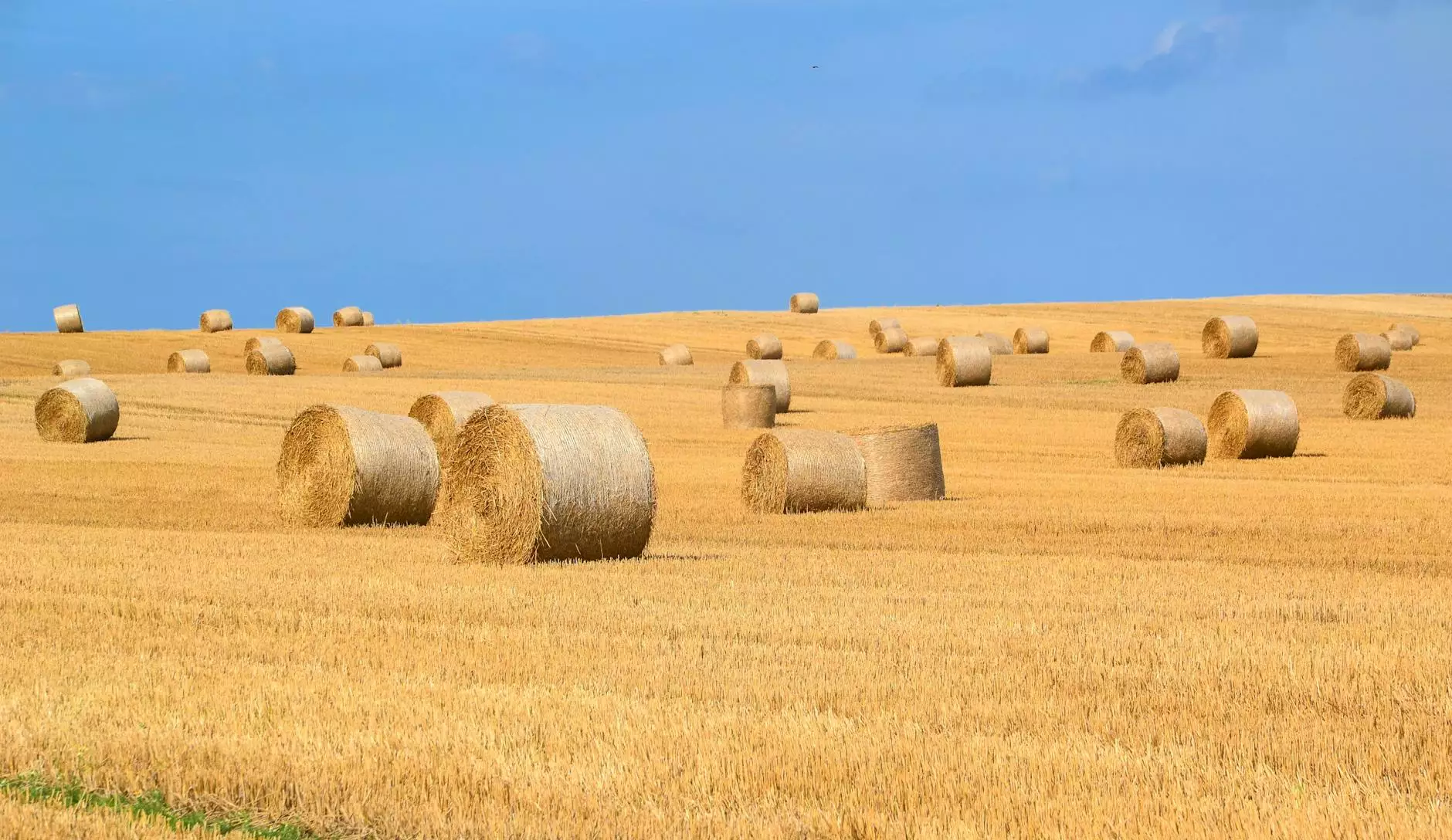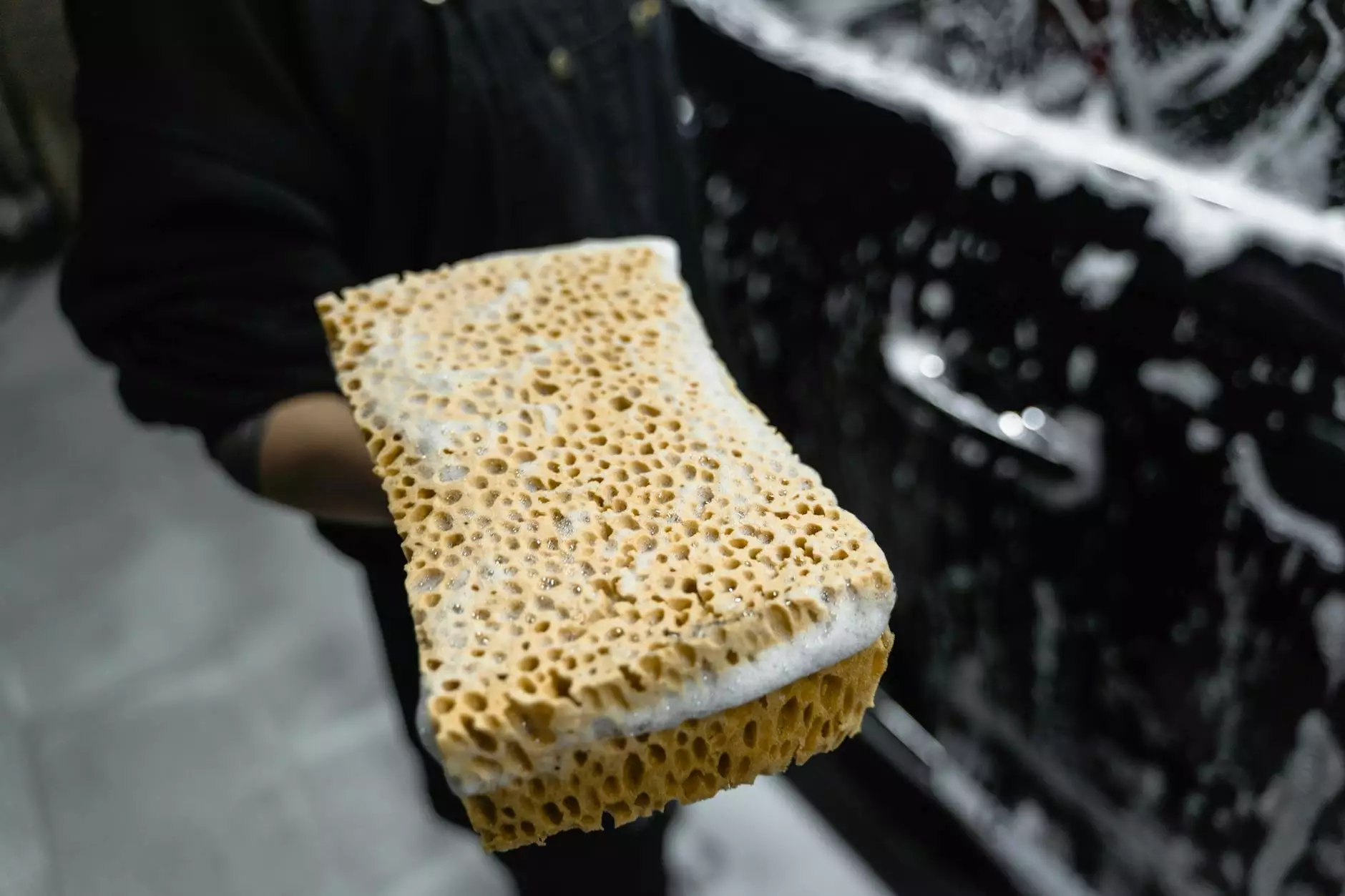Wheat Care: Essential Practices for Optimal Crop Growth

Wheat is one of the most important staple crops worldwide, serving as a crucial source of food and livelihood for millions. Effective wheat care is pivotal for maximizing yield and ensuring sustainable farming practices. In this article, we will delve into the best practices for caring for wheat crops, including soil management, irrigation techniques, equipment maintenance, and pest control, all integral aspects of successful farming.
Understanding Wheat: Types and Varieties
Before diving into the specifics of wheat care, it is essential to understand the different types of wheat. There are several varieties, including:
- Hard Red Winter Wheat: High in protein, ideal for bread making.
- Soft Red Winter Wheat: Used for cakes and pastries.
- Hard Red Spring Wheat: Known for its high protein content, perfect for leavened breads.
- Durum Wheat: Used for pasta, it has a high gluten content.
- White Wheat: Milder flavor, used in a variety of products.
The Importance of Soil Health in Wheat Care
Healthy soil is the foundation of strong wheat crops. Soil health impacts everything from nutrient availability to water retention. Here are some key practices for maintaining soil health:
1. Soil Testing
Regular soil testing helps farmers understand the nutrient profile of their fields. This information allows for informed decisions regarding fertilization and amendments.
2. Organic Matter
Adding organic matter, such as compost or cover crops, enhances soil structure and fertility. Organic matter helps retain moisture and improves nutrient availability, crucial for wheat care.
3. Crop Rotation
Implementing a diverse rotation schedule can break pest and disease cycles. Including legumes in the rotation can also enhance soil nitrogen levels, benefitting subsequent wheat crops.
Irrigation Techniques for Optimal Growth
Water management is critical in wheat cultivation, as both drought and excessive moisture can harm crop health. Here are key irrigation practices:
1. Drip Irrigation
Drip irrigation delivers water directly to the plant roots, reducing evaporation and ensuring efficient water use. This method is especially beneficial in areas with limited water resources.
2. Monitoring Soil Moisture
Utilizing soil moisture sensors can help farmers determine when to irrigate, conserving water and preventing over-irrigation.
3. Rainwater Harvesting
Collecting and storing rainwater is an effective strategy to supplement irrigation needs, especially in regions prone to dry spells.
Pest and Disease Management in Wheat Cultivation
Pests and diseases can severely impact wheat production. Implementing integrated pest management (IPM) is essential for effective control. Here are some strategies:
1. Crop Monitoring
Regularly inspecting crops for signs of pests or diseases enables timely interventions. Early detection is often key to preventing widespread damage.
2. Resistant Varieties
Choosing resistant wheat varieties can dramatically reduce the impact of specific pests and diseases, making them an invaluable tool in wheat care.
3. Biological Control
Employing beneficial insects, such as ladybugs and predatory wasps, can naturally regulate pest populations, reducing the need for chemical pesticides.
Farm Equipment Repair and Maintenance
Efficient farming relies on well-maintained equipment. Regular maintenance ensures that equipment operates at peak efficiency, which is vital for harvesting wheat and performing other field tasks.
1. Routine Inspections
Establishing a schedule for routine equipment inspections can help identify issues before they become costly problems. This includes checking engines, belts, and hydraulic systems.
2. Seasonal Maintenance
Each season presents unique challenges for farming equipment. Preparing machinery for planting and harvesting periods is crucial. This may involve lubricating parts, replacing worn-out components, and ensuring that equipment is clean for optimal performance.
3. Professional Repairs
For extensive repairs, consider partnering with a reliable farm equipment repair service. This is where companies like TSGC Inc. excel, offering professional expertise to keep your machinery in top shape.
The Role of Technology in Wheat Care
Technology is transforming agriculture. Here are some innovative solutions that can enhance wheat care:
1. Precision Agriculture
Utilizing precision agriculture techniques allows farmers to monitor field variability and optimize inputs accordingly. This includes GPS-guided tractors and advanced data analytics for crop health assessment.
2. Drones
Drones are becoming invaluable for monitoring large wheat fields. Equipped with cameras, they can assess plant health, identify pest issues, and even help in irrigation management.
3. Mobile Applications
There are numerous mobile applications tailored for farmers, offering everything from weather updates to pest identification and crop management advice.
Best Practices for Sustainable Wheat Production
As global populations grow, the need for sustainable farming practices becomes more pressing. Here are some strategies for sustainable wheat care:
1. Minimal Tillage
Adopting minimal tillage practices preserves soil structure, improves moisture retention, and reduces erosion, fostering a healthier growing environment for wheat.
2. Sustainable Fertilization
Utilizing organic fertilizers and precision application techniques minimizes nutrient runoff into waterways, promoting environmental sustainability while enhancing crop yields.
3. Biodiversity Enhancement
Encouraging biodiversity by planting companion crops or integrating livestock can improve soil health and resilience against pests and diseases, benefiting overall wheat care.
Conclusion: Committing to Excellence in Wheat Care
Effective wheat care encompasses a range of practices, from soil management to pest control and equipment maintenance. By implementing these strategies, farmers can enhance their crop yield while fostering sustainable practices. As the demand for wheat continues to rise, committing to excellence in wheat agriculture will be key to meeting global food needs.
For any challenges you face in your farming operations, including farm equipment repair and advice on farming equipment, consider reaching out to professionals like those at TSGC Inc.. Their expertise will not only ensure your equipment performs efficiently but will also provide you with insights and tools to optimize your wheat care practices.









